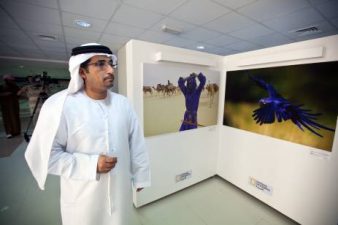 How should teachers incorporate environmental ethics and lessons on sustainability into their classrooms? That’s the focus of a four-year educational ecoliteracy project — Turkey’s first — which has just begun.
How should teachers incorporate environmental ethics and lessons on sustainability into their classrooms? That’s the focus of a four-year educational ecoliteracy project — Turkey’s first — which has just begun.
A training program for Turkish teachers kicked off this week in an unusual classroom: an arboretum in the northwestern province of Yalova. Beneath Yalova’s graceful willows, 75 teachers will spend the next week studying environmental issues from soil erosion to ethical forestry. They will be Turkey’s first certified “ecoliteracy instructors”, authorized by the Ministry of Education to share principles of sustainability with their schools.
Sponsored by the Ministry of Education and the Turkish Foundation for Combating Soil Erosion, Reforestation, and the Protection of Natural Habitats (TEMA), the project aims to certify 300 teachers over the next four years. Scientific experts and specially designed materials will be used to give each teacher participant a well-rounded educational in environmental issues, with a special focus on sustainability.
The need for ecoliterate education in Turkey
It’s appropriate that an ecoliteracy program is taking place in Yalova.
A major Turkish manufacturer, AKSA, is planning to build a coal- and natural gas-fired power plant in Yalova, an earthquake-prone but beautiful resort region. A previous AKSA plant caused huge damage to the area during the 1999 earthquake that devastated northwestern Turkey. When the Yalova Environmental Platform held a press conference to raise awareness about the potential danger of building a coal-fired plant in their region, AKSA sued the platform’s members.
Unfortunately, this story is being repeated at many sites around Turkey where thermal power plants are being built. It suggests that better environmental education is seriously needed at many levels of Turkish society.
“We need to plan accordingly so that we don’t make the same mistakes we do now,” said TEMA Education Head Burcu Arık.
“Nothing we have — whether it is the way we treat the environment or the education system — is sustainable. We must teach the next generation to live within the principles of nature.”
The four noble truths of the ecoliteracy program, according to Arık, are: everything is inter-dependent, everything is in flux, nothing lasts forever, and nature always has the last word.
Ecoliterate education: a global trend
This is Turkey’s first ecoliterate education program and one of the only nation-wide ecoliteracy projects in the world. Other schools throughout the Middle East have increasingly been incorporating environmental ethics into their curricula, however.
The 12th graders at the Al-Ain Liwa International School in the UAE, for example, designed a “green wall” for their school, which is just the first ina series of “greenovation” projects the administration is taking. And last autumn, Bahrain University held a two-day exhibition of environmentally friendly projects designed by its students, including a water-recycling system for mosques and solar heating/cooling systems.
Of course, you don’t need to have government funding or even a school to promote environmental education. It can be as easy as giving the children in your life a patch of dirt: an environmental microcosm to care for, and on which to practice their sustainable stewardship.
Read more about ecoliterate education:
Al-Ain Jungle School: Other UAE Institutes Are “Green” With Envy
Make Greener Children With A Patch Of Dirt
Bahrain University Exhibits Eco-Friendly Inventions Created By Students
Image via paraflyer



